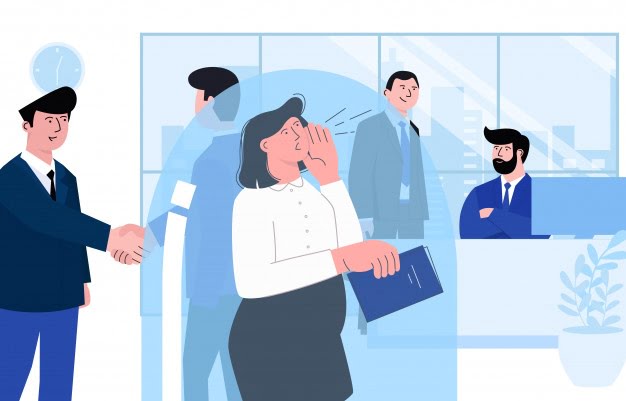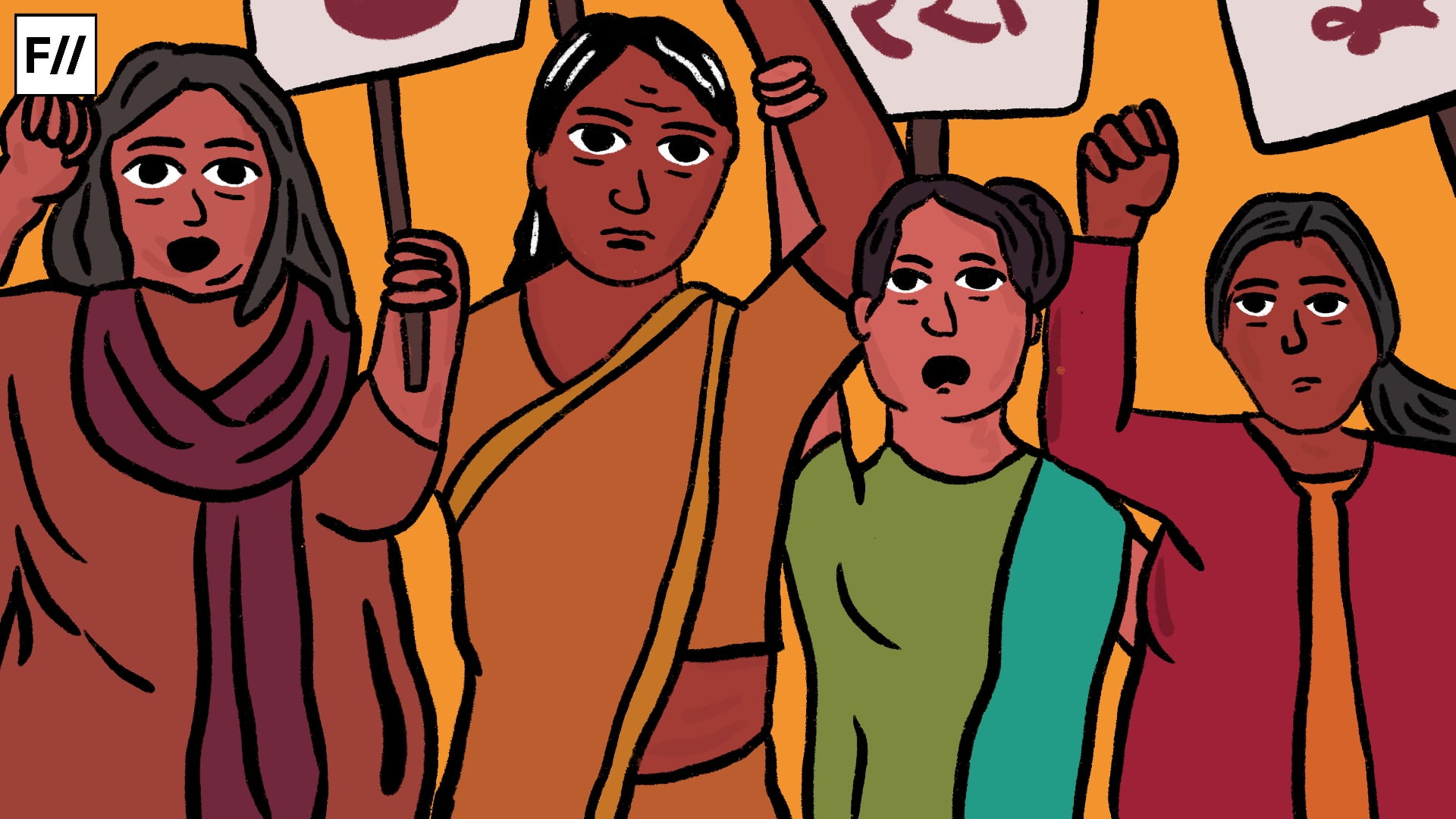The cause for gender equality has made tremendous strides since the 19th century when the nascent feminist movement pushed for female suffrage. Democracies world over now recognise women’s entitlement to formal equality. Substantially however, inequality between the sexes prevails, egregiously so in the workplace. Women still earn less than men. To negate the convenient argument of a merit deficit, it may be noted that according to the latest government report on gender related indicators in India (dated 2018), 53% of the individuals who had a postgraduate degree were women. In the developed world, this percentage is even higher. Hence, the dismally low proportion of women in the labour force cannot always be attributed to a gendered meritocratic differential.
Besides being doubly burdened by social expectations of homemaking in addition to professional responsibilities, what keeps bluestockings from shattering the proverbial glass ceiling is a credibility deficit—an implicit bias premised on gender that intercepts their contribution to the collective understanding of society. Simply put, a woman cannot rise in ranks at work because what she has to say holds little value to her audience. The idea may sound outdated. But a look at Miranda Fricker’s concept of testimonial injustice establishes otherwise.
What is Testimonial Injustice?
Knowledge is created largely through testimonial exchanges—spoken or written, direct or indirect. Together with reliance on others’ testimony to shape their knowledge, people also evaluate the worth of what has been conveyed. Testimonial injustice arises when an individual is denied recognition as a credible informant owing to an “identity prejudice” on the hearer’s part. The hearer stereotypically views an aspect of the speaker’s social identity as a disparaging attribute, thereby a deflated sense of credibility to her. Fricker conceptualised this idea in her seminal work Epistemic Injustice (2007).
Location of the speaker on the peripheries of social power owing to marginal economic, caste-based, educational, sexual, racial or other identities makes them vulnerable to testimonial injustice. Women can be located towards the upper end on this scale of marginalisation. While failing to uptake a woman’s testimony leads to what Kristie Dotson calls “testimonial quieting”, a realisation of the audience’s unwillingness to uptake her testimony can result in “testimonial smothering”, wherein the woman truncates her own testimony so that it only contains “content for which one’s audience demonstrates testimonial competence”. Being accorded recognition as a testifier is crucial to establishing personhood which is among the imperatives for a dignified existence. To the extent that testimonial injustice rooted in gender identity systemically impairs this fundamental human need, it classifies as structural violence.
Why Testimonial Injustice?
Gender is a marginalising identity marker for women. Socialisation of individuals into gender roles begins right from birth. Male infants are viewed as active and agency wielding, females as delicate and sweet. Female competence to be authoritative is questioned. Women are associated with weakness, and less prestigious roles endowing little agency to her. In fact, feminist scholars argue that reason, objectivity and intellect are gendered male. While the 19th century Hegelian argument that women are “subjective” and “regulate their actions not by the demands of universality but by arbitrary inclinations and opinions” seems dated, contemporary empirical evidence proves its currency. A study published in 2019 found that both implicitly and explicitly, individuals, regardless of gender, associate reason with male and feelings with females.
Culturally conditioned inculcation of such negative prejudices affects how women are perceived in their capacity as knowers, besides denigrating their epistemic acumen. Subsequently, their contribution in testimonial exchanges isn’t duly recognised. In workplaces, this manifests in different ways to impact women’s prospects for occupational retention and advancement.
Testimonial Injustice at Work
In their research, Kendal and Deborah Tannen found that women speak less than men in male dominated public forums. Studying seven university faculty meetings, Barbara and Gene Eakins found that men outspoke women in speech duration and frequency in each one. Female reticence in meetings isn’t entirely by choice. Tanner attributes it to the fact that women get to hold the floor far lesser than men and whenever they do, they are interrupted. Women in the Indian IT industry often find their caliber being questioned. A female software engineer recounts how in response to her complaint about a technical glitch in the system, her male colleague suggested that she ‘stick to talking to clients’ and not interfere in technical areas.
Besides being doubly burdened by social expectations of homemaking in addition to professional responsibilities, what keeps bluestockings from shattering the proverbial glass ceiling is a credibility deficit—an implicit bias premised on gender that intercepts their contribution to the collective understanding of society. Simply put, a woman cannot rise in ranks at work because what she has to say holds little value to her audience. The idea may sound outdated. But a look at Miranda Fricker’s concept of testimonial injustice establishes otherwise.
In her article, The Universal Phenomenon of Men Interrupting Women, Susan Chira recorded testimonies of women claiming that ideas they pitched at meetings would be slammed by their male superior, only to reappear some days later as the superior’s genius. Often, the same contributions which are ignored or demeaned when made by women, are applauded when made by men. But can women keep pushing to be heard? Not really.
Studies have found that while male display of anger and assertiveness is rewarded, women displaying similar traits are viewed as incompetent and undeserving of authority. When senator Kamala Harris, a former prosecutor, assertively interjected Attorney General Jeff Sessions during a senate hearing in 2017, not only was she interrupted repeatedly, but a CNN commentator later called her conduct “hysterical”. In a scenario where women are systemically penalised for vocalising more than they “should”, some knowingly or unknowingly smother their testimonies, talk less, only to have the blame for occupational mediocrity put on them later and be told they aren’t progressing because they aren’t confident enough.
Also read: How You Can Build Better Workplaces
Even when it comes to retelling and seeking redress for experiences of harassment at work, either women’s ability to decipher their personal experience, or their intention, is questioned. When engineer Susan Fowler blew the whistle online on repeated instances of sexual harassment she experienced during her time at Uber, among the many comments were few asking her to show documentation proving her claims lest she should misconstrue “feminist delusion” as sexism. Geetika Tyagi’s example is also relevant. While the Bollywood actress was applauded by few for opening up about her experience of being sexually assaulted by director Subhash Kapoor a few years prior to the revelation, her colleagues in the industry called her account a fabrication of what was actually willful acquiescence on Tyagi’s part.
This is not to negate the fact that with social media, movements like #Metoo have been tremendously pervasive in sparking discourse on sexual harassment and bringing many a perpetrator to justice. However, an understanding of intersectionality becomes crucial at this juncture. Different identities subject an individual to different intersecting prejudices. Women who fired the chain of calling out sexual predators at work (like producer Harvey Weinstein) under the MeToo tag were mostly successful, white actresses.
While failing to uptake a woman’s testimony leads to what Kristie Dotson calls “testimonial quieting”, a realisation of the audience’s unwillingness to uptake her testimony can result in “testimonial smothering”, wherein the woman truncates her own testimony so that it only contains “content for which one’s audience demonstrates testimonial competence”. Being accorded recognition as a testifier is crucial to establishing personhood which is among the imperatives for a dignified existence. To the extent that testimonial injustice rooted in gender identity systemically impairs this fundamental human need, it classifies as structural violence.
Harrowing testimonies of these powerful women made the structural nature of the problem undeniable and inspired other, lesser privileged women to follow suit. But would #Metoo has gathered the same momentum had it been sparked not by global celebrities but by Weinstein’s lesser known staff? Well, the Me Too slogan was used earlier. The first time it appeared online was in 2006, uploaded by black civil rights activist Tarana Burke. But it took 11 years and a few celebrity testimonies to bring the campaign to the fore.
What Now?
Women’s rationality and objectivity have always been questioned and the purported lack thereof asserted as justification for keeping them on the margins of the public sphere. But sexism has definitely morphed with time. Mutual exclusivity of reason and emotion as gendered traits is no longer acknowledged overtly in general, but it lingers on surreptitiously in our society. Now an employer won’t say “She can’t be trusted at work; she is a woman”, they’ll say, “She can’t be trusted at work; she is too emotional, subjective, arbitrarily opinionated.”
To effectively decouple the female identity from deflated credibility, we need structural changes equalising access of all potential epistemic agents to resources shaping their knowledge and their conception of a knower right from childhood. But even to come to that, recognising that bias exists, is a crucial first step.
Also read: Sexual Harassment At Workplace: A Closer Look At ILO Convention 190
As Nancy Daukas suggests, “oppositional epistemic agency”, which enables one to recognise and resist “values and theoretical commitments embedded in epistemic practices and products that maintain a culture of domination and oppression”, must be developed. Fricker talks of a responsibilist form of virtue epistemology” in this regard. The speaker, and more importantly the listener, must be aware of the identity based power dynamic between them that mediates spontaneous perception of testimonial transactions. For women to do better at work, men must first listen.
Namrata Gogoi is an undergraduate in my second year, pursuing BA (Honours) in Political Science from the University of Delhi.
Featured Image Source: Freepik





Amazing article. Provides unique insights on discrimination at workplace.
Amazing article. Provides unique insights on discrimination at workplace.
Well put. As a woman, I can relate to this so much. It isn’t just In the workplace that women face discrimination of this sort but also in private sphere of their homes. As mentioned above, recognition of existing bias is very important. That is how each of us can consciously contribute to creating equitable spaces for all.